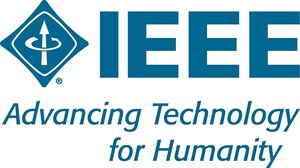IEEE Addresses Engineering Education's Role in the New Economy
PISCATAWAY, N.J., Nov. 18, 2010 /PRNewswire/ -- Members of IEEE, the world's largest technical professional association, are encouraging traditional university-based engineering educators to think about engineering education's role in the new economy, and how today's curriculum can influence tomorrow's engineers.
"The new economy is based on invention: the creation of new solutions that address both world-changing challenges such as energy, healthcare, sustainability, and security and life-changing opportunities to feed the world's hunger for a better quality of life," said Dr. Leah Jamieson, IEEE fellow and John A. Edwardson Dean of Engineering and Ransburg Distinguished Professor of Electrical and Computer Engineering at Purdue University. "From smart meters for energy to smartphones for business and entertainment, technology is the enabler, and engineering is the foundation for the innovation economy."
IEEE members are promoting a cultural change to drive a more holistic view into engineering education; focused beyond technical skills to incorporate experience and relevance into university courses. Supporting experience-led education curriculum—from working on projects that bring electricity to remote villages to addressing challenges of sustainability, security, and infrastructure—educators can show engineering's powerful role in delivering societal solutions – making engineers representative of tomorrow's solutionist.
"We are on a mission to expand the scope of technical and engineering education — connecting industry to students in order to drive new, innovative ways in thinking about interdisciplinary work, professionalism, sustainability, leadership, communication, teamwork, and entrepreneurship," said Dr. Moshe Kam, IEEE 2011 president and CEO, and Department Head of Electrical and Computer Engineering at Drexel University. "The objective is to bring real world projects and industrial experience into academic labs and classrooms; enabling students to be creative, collaborative, and able to draw on the strength of multiple disciplines and many professional colleagues in order to develop new products and services that improve human welfare and safeguard the environment."
IEEE supports continuing education through a number of initiatives around the globe. These include a University Partnership Program and global student branches; the IEEE Real World Engineering Project (RWEP), which aims to develop excellence in learning and teaching through curriculum development; global accreditation peer-review programs; and IEEE Engineering Projects in Community Service program that organizes university and high-school students to work on engineering-related projects for local humanitarian organizations. IEEE is also a partner in online educational resources: TryEngineering.org and TryNano.org. To learn more about IEEE educational programs go to: www.ieee.org/education_careers/index.html.
Responding to the question about engineering education's role in the new economy, IEEE leaders participated on a leadership panel titled, "Thought Leader Perspectives: Engineering Education's Role in Bridging Creativity and Relevance to Deliver Tomorrow's Solutionist." A portion of the online discussion is captured here, and the full report can be found at: www.ieee.org/go/newsroom.
IEEE technical experts are available to discuss the following:
- What Role Will Engineering Play in the New Economy? Dr. Roger Pollard, IEEE director and vice president of Technical Activities, explains "Engineering will play a vital role in the new economy. There's an urgent need for creative engineering and spending on applicable research to benefit humanity, while impacting the economy, overall quality of life and the improvement of our planet."
- When Dr. Sivaji Chakravorti, IEEE senior member and chair of the IEEE Power & Energy Society Chapter (2010), in the IEEE Kolkata Section was asked, What are the Biggest Misconceptions About Engineering? he answered, "Most of the engineering students believe that the larger part of their curriculum is not required in their professional life. But that is not true. Engineering education must cover a wider range of subjects so that students will be able cope with the demands of professional life irrespective of where they are working."
- What can we do as a Society to Encourage More Students to Become Interested in Science and Engineering? Dr. Matthew Ohland, IEEE senior member, stated, "We must change the way we talk about engineering to stir a passion for the career in young people. If they become interested, they will find out about the requirements later. When doctors talk to young people about careers in medicine, they don't talk about the time they spent as overworked and underpaid interns."
For more information on IEEE, or to speak with a member about the future of engineering education, please contact: [email protected].
About IEEE
IEEE, the world's largest technical professional association, is dedicated to advancing technology for the benefit of humanity. Through its highly cited publications, conferences, technology standards, and professional and educational activities, IEEE is the trusted voice on a wide variety of areas ranging from aerospace systems, computers and telecommunications to biomedical engineering, electric power and consumer electronics. Learn more at http://www.ieee.org.
SOURCE IEEE
WANT YOUR COMPANY'S NEWS FEATURED ON PRNEWSWIRE.COM?
Newsrooms &
Influencers
Digital Media
Outlets
Journalists
Opted In






Share this article